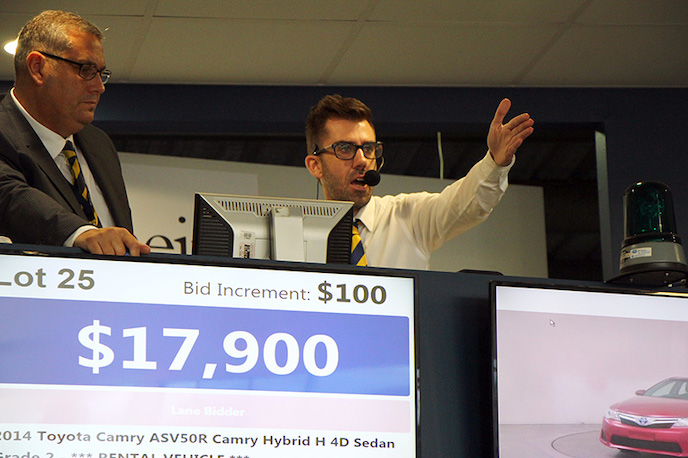
Dealer-used vehicle selling prices have stopped coming down in 2024, trending slightly upwards again, according to Cox Automotive Australia (CAA) retail data.
The CAA dealer delisted used car price Index ended March 2024 at 136.5, up from 134.2 at the beginning of the year.
An Index figure of 136.5 denotes an average dealer used-vehicle price increase of 36.5% since the base 100-point period, December 2019. The index is adjusted by list price and volume-weighted, with price changes including inflation.
This quarterly trend marks a change from 2023, which saw 11 consecutive monthly price index declines as the used market cooled following dramatically elevated prices during the COVID period, where shortages were a core issue.
The CAA dealer delisted used car price index peaked at 148.1 in August 2022, meaning prices on average across all segments and age groups have fallen 7.8% between then and now.
The pricing trend across 2024 is not surprising when looking at the market demand and supply changes. Used car transactions in dealers across Q1 of 2024 are up a healthy 10.8% year-over-year (YoY), but at the same time, dealer active listings (inventory) are down 6.2% since late 2023.
Market days’ supply of all used vehicles hit 68 days at the end of 2023 and has since declined to 63 days, which would be expected given demand is outpacing supply in the CAA data.
However, pricing trends must be uniform, with substantial differences based on vehicle type and age. In brief, traditional passenger sedans and hatchbacks are more inflated than SUVs, and older vehicles are holding onto elevated values for longer than newer vehicles.
At 146.9 overall, passenger cars are, on average, selling for 46.9% more than before COVID. Prices are kept elevated by demand outpacing supply, with dwindling sales of traditional passenger cars in the new market (50% market share a decade ago, under 20% today) yielding shortages down the line.
By contrast, the SUV Index is up 28.2%, Pickups are up 35.8%, and BEVs & PHEVs are up 16.7%. Much has been made of EV resale value, but the small sample size (0.3% of the used market in the data is an EV or PHEV) means there’s significant month-over-month volatility for the time being.
Another trend is that older cars maintain more inflated prices, likely primarily driven by increased demand for cheaper vehicles due to elevated household spending pressures.
Manheim wholesale auctions
Cox Automotive owns Manheim, a national wholesale auction house facilitating remarketing ex-fleet and traded-in used vehicles.
Vehicles sold through the national wholesale auctions came from a few sources, with the most significant share coming from fleet companies, OEMs, dealers, and the private sector. Government, corporate, and financier fleets sell vehicles through Manheim’s weekly auctions.
Overall auction sales were up a healthy 29.8% during Q1 YoY, though sales are still below COVID-era levels.
The overall Manheim Price Index of 138.9 is down 6.3% YoY but has been stable for seven months now, meaning vendors should have confidence that today’s sales prices are about where the market sits. The Index is also down 17.1% from its mid-2022 peak when the wholesale market was highly inflated.
As we witnessed in the dealer-used retail market, there’s a correlation between older vehicles and higher Price Indexes. For example, eight- to 10-year-old passenger cars are up 77.1% over December 2019.








